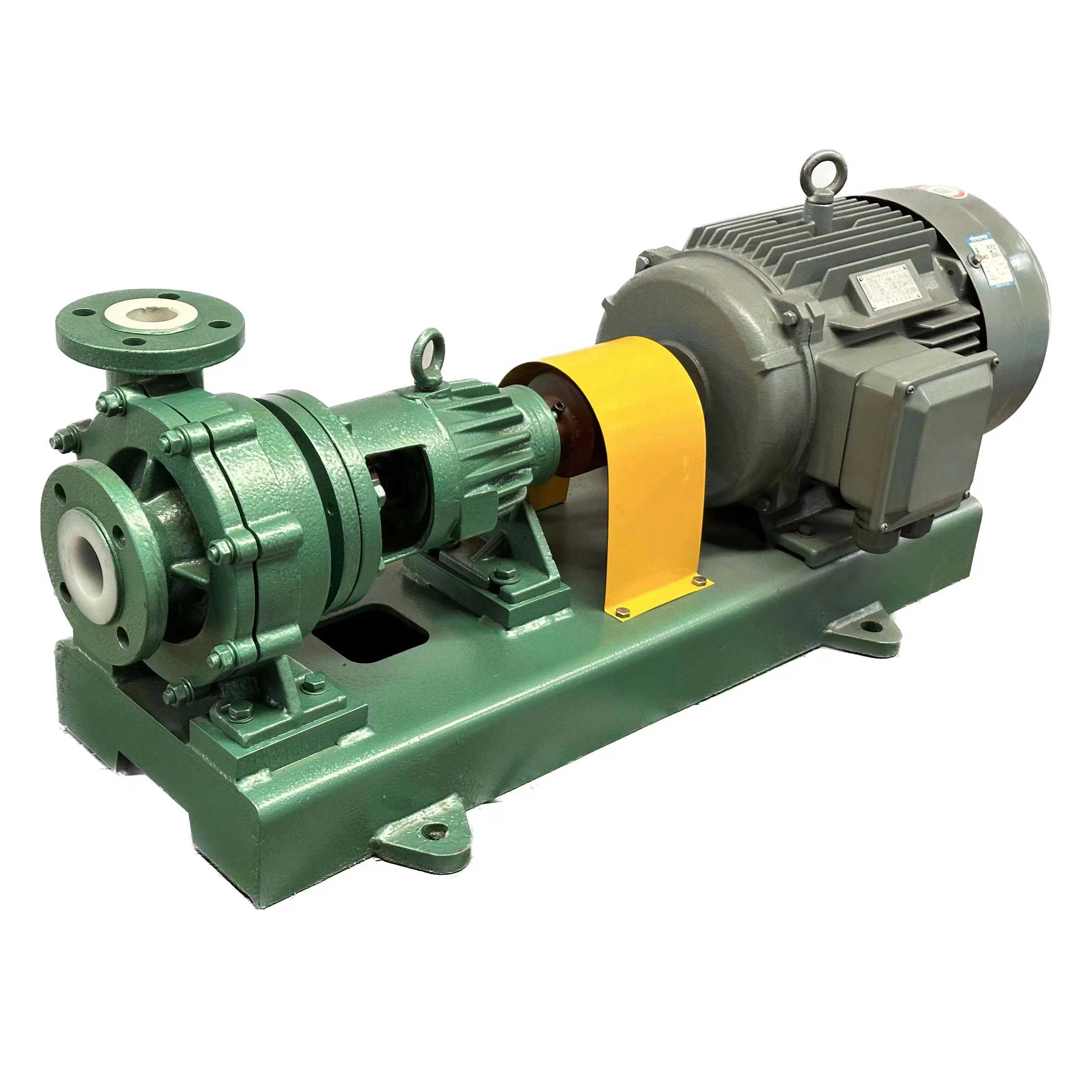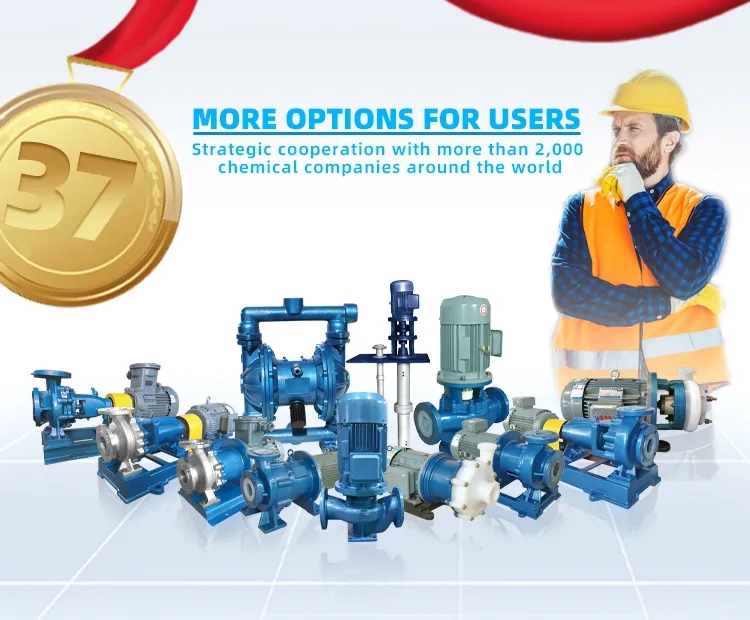TEL: +86 15587495056
What are the types of plastic chemical pumps? How much temperature can it withstand

Plastic chemical pumps ability to withstand temperature depends on the material of the pump body and the characteristics of the sealing material.
1. Material available for plastic chemical pumps is FRPP, reinforced polypropylene material, and the pump body can withstand temperatures as much as possible within 65 ° C. The upper limit of temperature for sealing material NBR and EPDM is 80 ° C
2. Plastic chemical pump is made of PVDF material and polypropylene fluoride. The pump body should be able to withstand temperatures within 90 ° C. The upper limit of the temperature of the sealing material VITON is 90 ° C.
3. Plastic chemical pump uses fluorine alloy plastic and perfluoroethylene polypropylene. Pump body is recommended to withstand a temperature of 150 ° C. Pump sealing material is Teflon.
4. Temperature resistance range, material mechanical properties, and corrosion resistance of soluble polytetrafluoroethylene (PFA) are similar to those of F46. Long term use at temperatures ranging from 196 to 260 degrees Celsius, it has good chemical corrosion resistance and is resistant to every chemical. Its friction coefficient is relatively low in plastics, and it has good electrical properties. Its electrical edge is not affected by temperature, earning it the title of “plastic king”.
5. Polychlorotrifluoroethylene (PCTFE), also known as F3, has good production process performance and corrosion resistance, but low temperature resistance. The melting temperature of thermal performance PCTFE is 212~217 ℃, and the higher the crystallinity, the higher the melting temperature. The glass transition temperature (Tg) also varies with crystallinity, usually between 45 and 90 ℃, measured by the thermal dilatometer method at around 50 ℃. Prolonged exposure of PCTFE to 260~28OC will result in a decrease in molecular weight due to thermal decomposition.
6. High molecular weight polyethylene pump (thermoplastic)
High molecular weight polyethylene (UHMWPE) is a new type of pump engineering plastic. The American Society for Testing and Materials (ASTMI) requires linear polyethylene with a molecular weight of 3-6 million to be called high molecular weight polyethylene. Due to its very long molecular chain, possessing numerous unique physical and mechanical properties, its corrosion resistance is higher than other thermoplastic plastics at present, and its surface friction coefficient is low. It has good low-temperature impact resistance, excellent environmental stress cracking resistance, good cold resistance, and non-toxic properties. It is particularly suitable for transporting corrosive media containing fine particles, but its high temperature resistance is not high. Pumps made of this material are allowed to use a temperature of 80 ° C.
7. Reinforced polypropylene pump (thermosetting)
Reinforced polypropylene (FRPP) glass fiber is a mixture of polypropylene resin and short cut glass fibers (with a total content of 10% -40%), which are extruded and pelletized. Usually, injection molding is used, which not only has the good properties of polypropylene and a 10% increase in density, but also improves the high-temperature resistance, creep resistance, and dimensional stability of polypropylene. At the same time, the mechanical properties of the material have also significantly improved, such as an increase of 1-2 times in tensile strength and bending strength, and an increase of 1-3 times in impact strength.
Pump casing made of reinforced polypropylene can withstand temperatures up to 100 ° C, and can withstand most acid, alkali, and organic solvent media except for oxidizing acids, concentrated nitric acid, and chromic acid. The reinforced polypropylene pump can be integrally molded by injection molding, with high work efficiency and low cost, making it more suitable for places with less stringent transportation medium conditions.


What’s up, just wanted to mention, I enjoyed this article.
It was practical. Keep on posting!
We’re a group of volunteers and starting a new scheme in our community.
Your website provided us with valuable info to work on. You
have done a formidable job and our whole community will be grateful to you.
Heya just wanted to give you a brief heads up and let you know a
few of the pictures aren’t loading correctly. I’m not sure why but I think its a linking issue.
I’ve tried it in two different web browsers and both
show the same outcome.
This blog was… how do I say it? Relevant!!
Finally I’ve found something which helped me.
Many thanks!
happy to see it helpful for you.
WOW just what I was looking for. Came here by searching for запчати для нотбуков